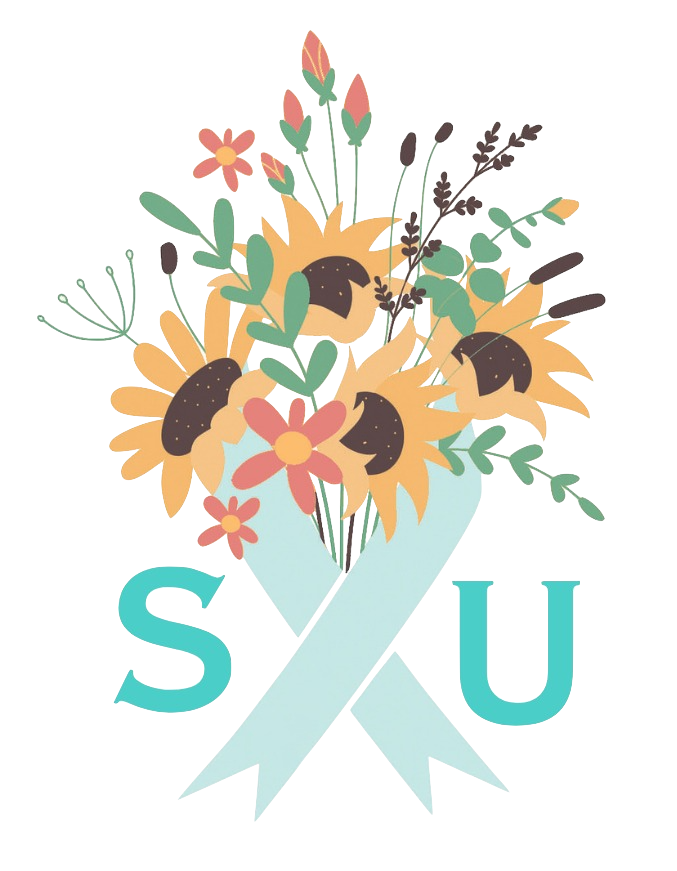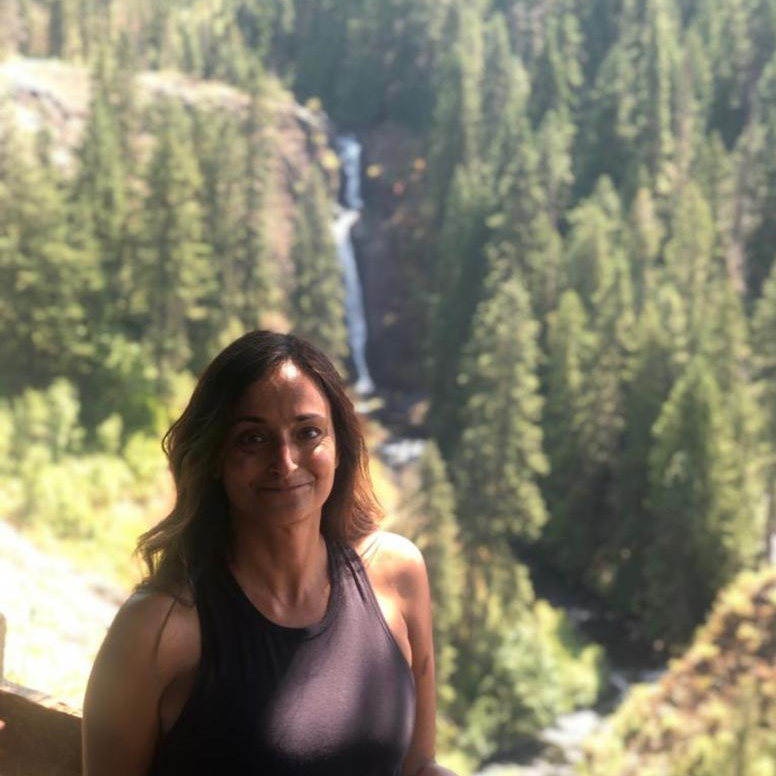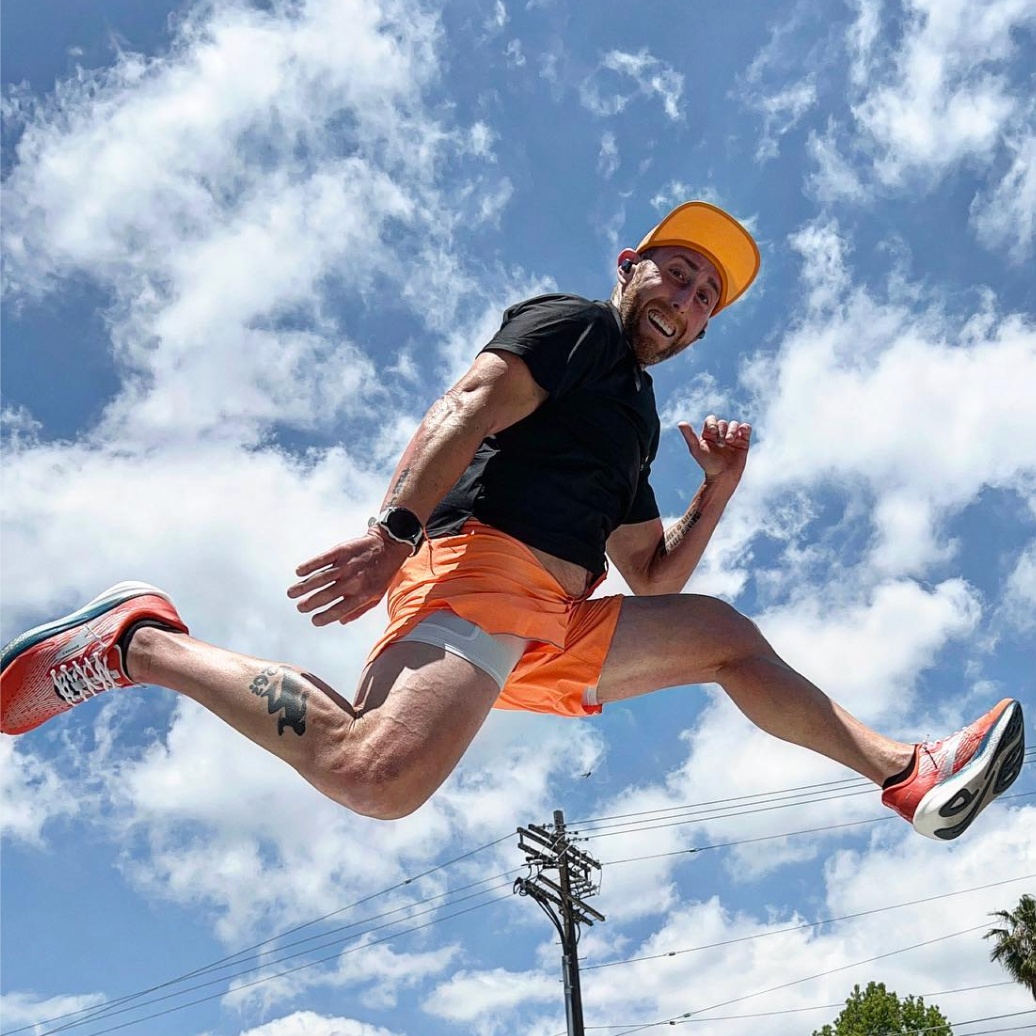Los Angeles, California (United States)
ELAINE WILEY
Scleroderma Stories Issue 4
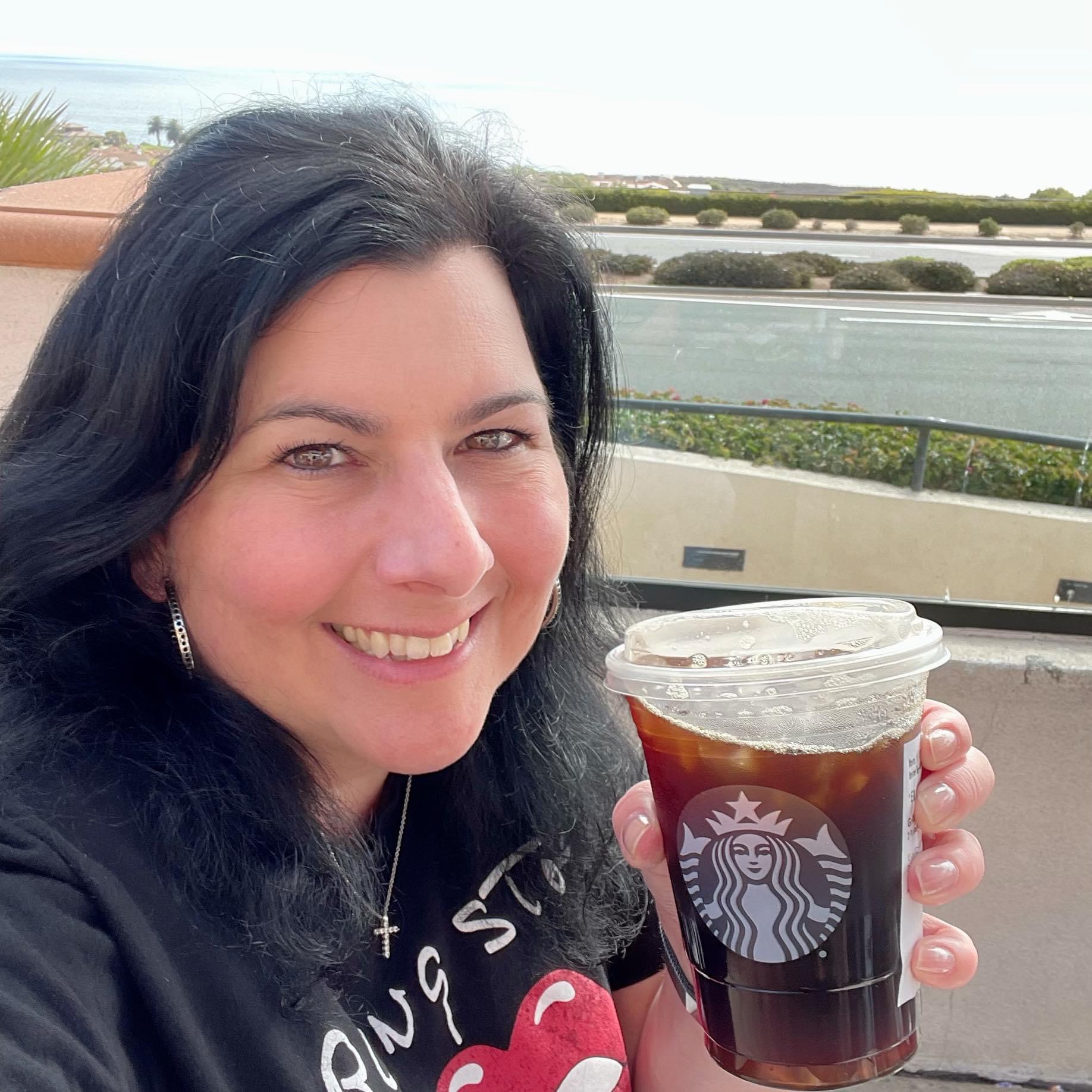
Please introduce yourself
My name is Elaine. I am 45 years old. I live in Los Angeles, but I grew up in the San Francisco Bay Area. I went to school at the University of Nevada in Reno.
I’ve been married for 18 years to my husband, David. I love to travel! I also binge-watch YouTube a lot—I love Disney content! I am kind of addicted to Starbucks, too.

When were you diagnosed with scleroderma?
My diagnosis was actually quite different from that of most people. I was already under the care of a rheumatologist at the time, who had diagnosed me with rheumatoid arthritis and was treating me for it. Then, I started to feel really sick, especially internally.
My husband and I were in the frozen foods section of the grocery store one time, and he noticed that my lips were blue. I was thinking, “Did I eat a popsicle or a lollipop?” I kept trying to rationalize it. I realized I had been short of breath lately — maybe it was a lack of oxygen. I wasn’t really familiar with Raynaud’s syndrome at the time. My hands also started to look like they had been dipped in acid. They were completely red, so I thought it was eczema. I already had a diagnosis. I didn’t understand that I could be sick with something else.
Then, I started having issues with my GI tract. I would get really sick every night. I was throwing up whole food hours after eating. I immediately knew this was not a rheumatoid arthritis-related issue. I had been diagnosed with malabsorption before; the lower GI tract was normal, but this was the upper part of the tract.
I decided it was time to tell my rheumatologist what was going on. The rheumatologists at the teaching hospital I am at in Los Angeles are familiar with rare diseases and rare conditions. They always thought I had overlap between rheumatoid arthritis and lupus.
When he saw my hands and I told him that it was so tight it felt like my skin was gonna rip open, I was short of breath, and my lips were discolored, he decided to run my blood panel. This was February 2016.
My Scl-70 turned positive—it was over 100 and they had quit counting. At this point, we were calling it Scl-70 positive to avoid any kind of diagnosis when we knew it could just be an antibody. However, when the capillary nail refill test came out positive too, I was checking all of the boxes of scleroderma. It turns out that we probably couldn’t get the initial autoimmune diagnosis under control because of the lurking scleroderma.
Since then, I have seen a scleroderma specialist here in Los Angeles and received my formal diagnosis, but because scleroderma is more “internal” than what I was dealing with before, I have been trying to figure out my new “normal”.
What treatments have you undergone?
Before being diagnosed with scleroderma, I worked full-time. When I had to step away from work for two-and-a-half months, I realized being a previous rheumatology patient was a blessing in disguise.
I was able to start treatment really soon. I started my treatment with CellCept, which the dermatologists and rheumatologists agree truly helped my skin. I’m able to take rituximab now as well.
Being in a big city like Los Angeles where the rheumatologists know about diseases like scleroderma and what specific signs and symptoms to look for means I have been in good hands.
I also really believe in the placebo effect. If my doctors are simply encouraging me and helping to take some of the mental stress and burden off of me, I can live my life day-to-day and figure out things as I go, all while knowing I have a stable force in my doctor to go back to.
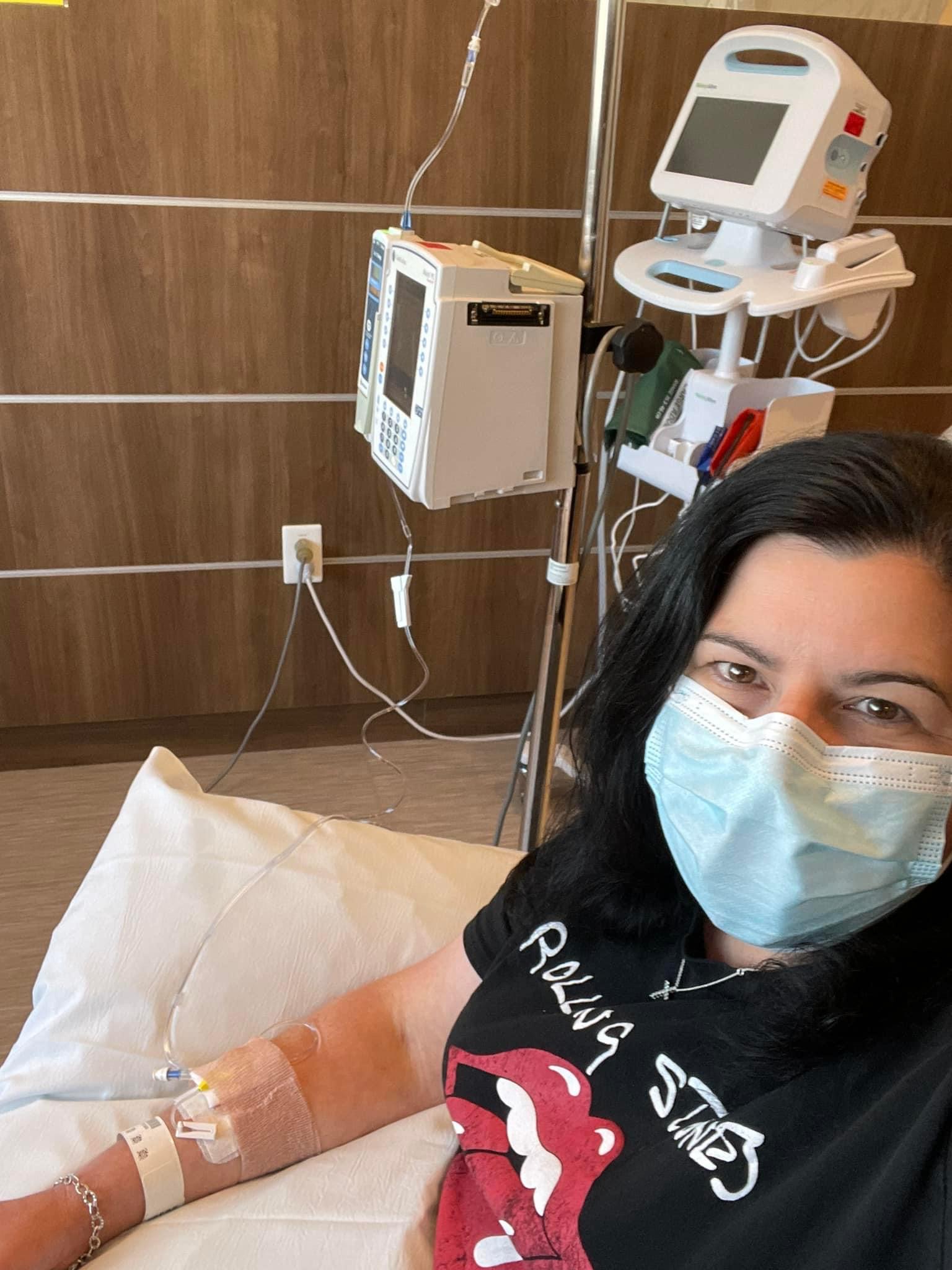
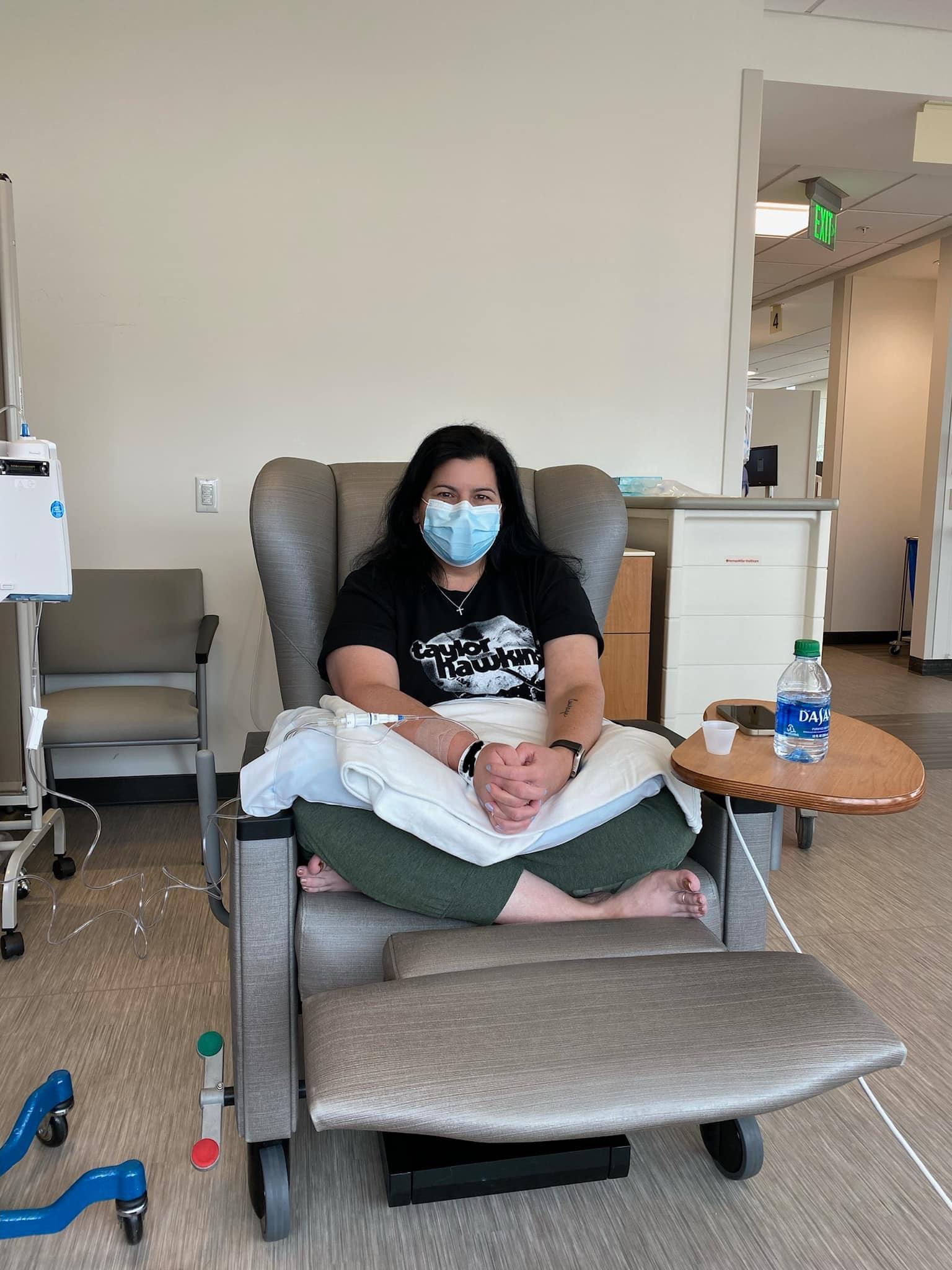
How has your mindset changed since your diagnosis?
I did start out feeling really hopeless in the beginning. I felt like the diagnosis was a death sentence. I immediately did the worst thing you could do at the beginning: I went on Google.
I didn’t just google “scleroderma,.” I googled Scl-70. That’s definitely not something you want to do! I felt that sinking feeling of “Oh my gosh! I have five years left to live… But there’s so much I want to accomplish in the next five years!”
What I didn’t realize (and what I try to help other patients understand better through advocacy) is that everyone has a different journey and that the statistics that you read on Google aren’t updated. It’s just not accurate anymore. We’ve had breakthroughs from researchers taking an active interest in the scleroderma community that might not be getting all the notoriety they deserve, but progress is progress regardless. That ultimately changed my mindset. This diagnosis is NOT a death sentence. You have to educate yourself and slowly learn to live with it.
I have a YouTube channel, and I always start off my videos by saying “My name is Elaine, and I am living with autoimmune disease” because I want people to know and understand that you can live with this.
Tell us more about your YouTube channel!
My channel has about 460 subscribers as of now. To me, that’s a small community—a family that was brought together by something we share in common.
I started the channel to create a support group for middle-age adults. I saw a plethora for young adults and retired folks, but nothing for my age range (I’m 45). The channel is a great way for me to share my life living with autoimmune disease and the experiences associated with that.
For example, if people see me working or traveling, it may give them hope aside from the struggles of the very obvious hard days.
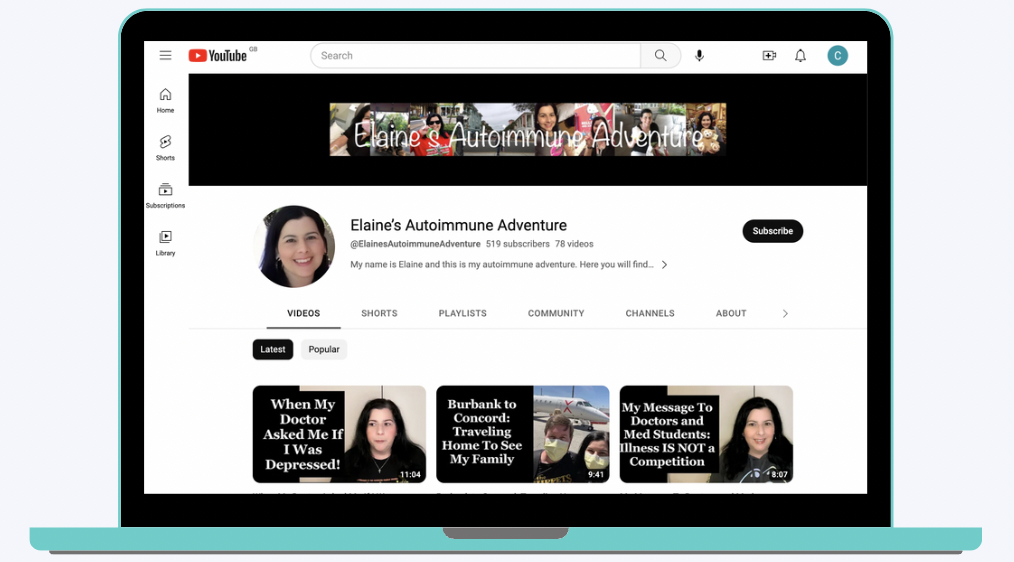
How has scleroderma affected your relationships?
I have had a really strong support system. My husband and mom are my caregivers. My husband is here all the time, and my mom lives in the Bay Area, but they, alongside my friends, have really worked towards learning about what scleroderma is and what they can do to help me.
During COVID, with lockdowns, I was stuck inside because of my infusions and the immunosuppressants. Every week, my friends would come visit me while maintaining social distance and all the protocols. It really shocks me how hard my family and friends have tried to learn about my life.
On the other hand, though, there are plenty of people that don’t understand. They’ll see my skin and say “Do you have eczema? You should try XYZ.” And I’m thinking, “Yeah, all those lotions aren’t going to help.” I feel like I just can’t educate people at that point. Our job as patients, to a certain extent, is to inform people; we can’t help what they do with that information.
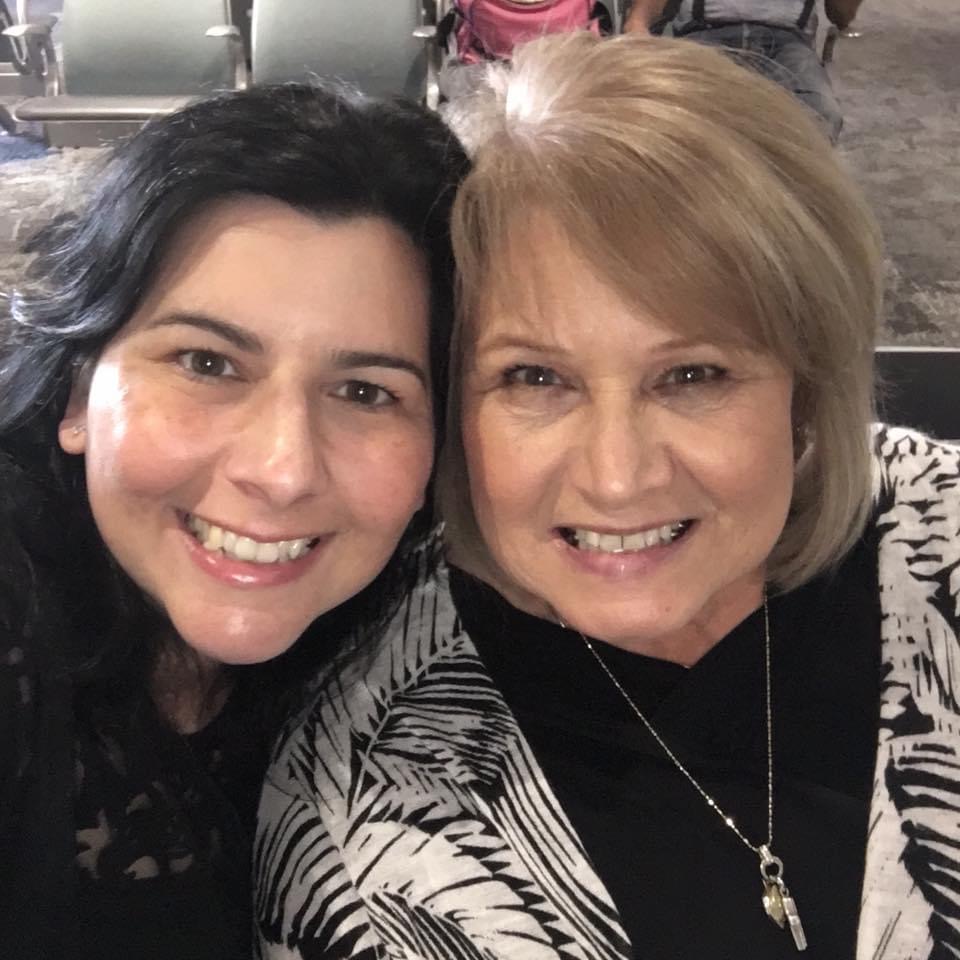
How about your work life?
I currently work as a legal secretary. When I was first diagnosed with scleroderma, I stepped away for two and a half months. I had just started CellCept, and I was figuring out the side effects of that. Alongside that, I was working through this new “normal.” Taking medications would become part of my lifestyle, and that was not easy to come to terms with.
During the pandemic, I really struggled with the fact that people didn’t understand that I was sick even though I didn’t look the part, or that the medications I was on made it very risky for me to be around crowds. Even now, there are periods when I am not able to do my job. For example, when stress from work causes my hands to flare up, the fatigue becomes too overwhelming, and I can’t function at the same capacity as before.
I’m able to work from home now, which is a big relief. Even more so, though, I’ve been with my employer for a long time, so I’ve just learned about the resources available to me as an employee and how to best take advantage of them. For example, I have been able to schedule doctor’s appointments with ease and take short-term disability. These are things that definitely aren’t awarded to all employees, especially not to those who may have just started in their jobs.
Often, work just ends up serving as a good distraction from the regular treatments, tests, and visits to the doctor. They get to be very overwhelming over time.
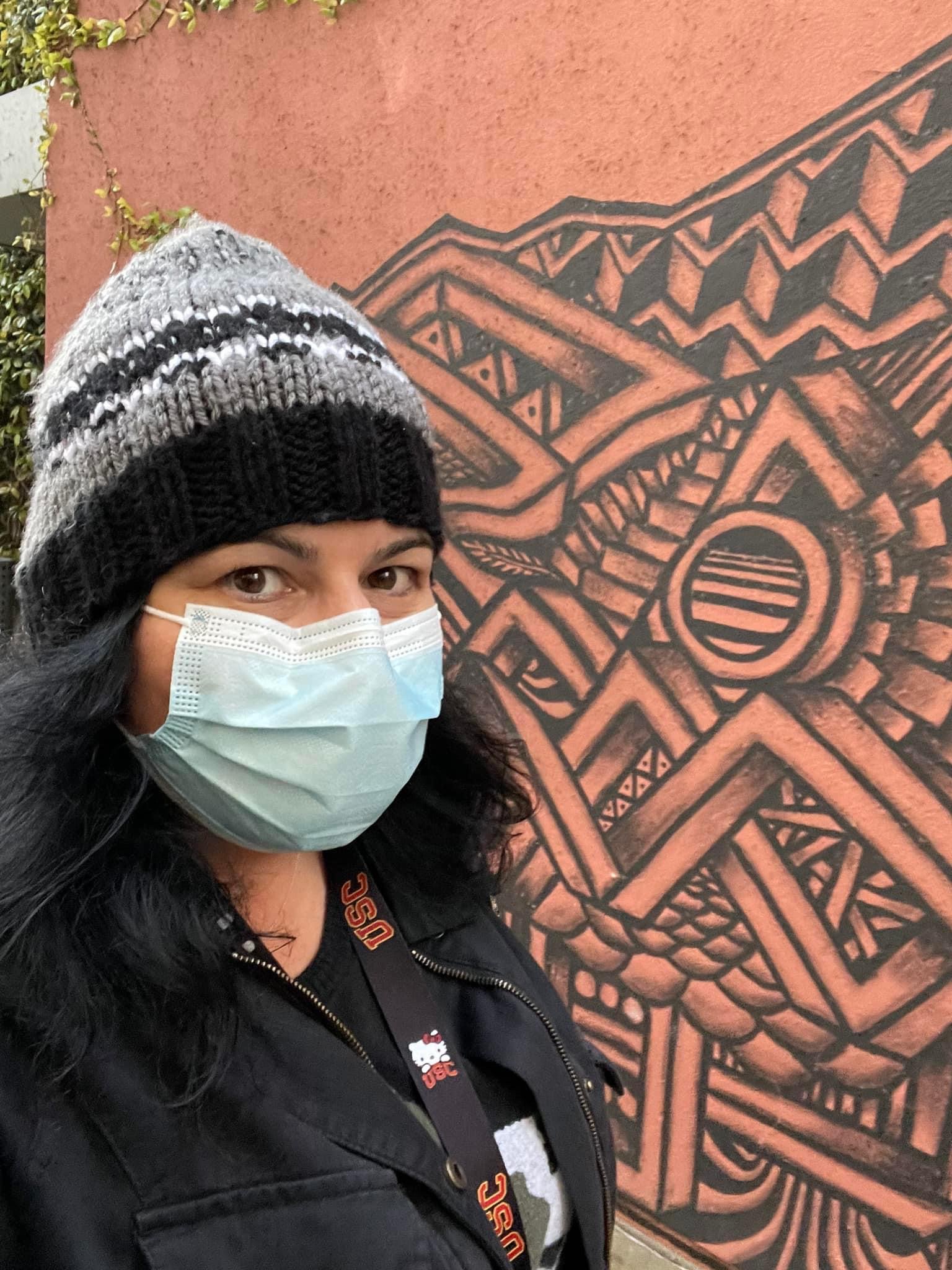
What are some of the financial effects scleroderma has had on your life?
If I’m being totally honest, the reason I keep working is that I need my health insurance to pay for treatments, medications, and doctor’s visits. I used copay assistance in the past when I didn’t have health insurance. The services are so expensive that I have had to do this.
Something my rheumatologist has done for me is give me samples from their office. They signed me up to use items free of charge from certain drug companies as well since they get to be very expensive. Being open with doctors about costs or that you cannot afford them means the doctors can work behind the scenes to help figure that out for you. It’s in their best interests to get you stable via a set treatment plan. I don’t think a lot of patients know that that is even an option. Or, they might feel intimidated to mention it to the doctor.
For the year ahead of me, I have a set deductible. But with all the testing, such as an echocardiogram and high-resolution CT scan, the expenses really hit you at the beginning of the year. It’s hard to pay back.

What lessons have you learned along your journey?
I learned to slow down. Throughout college and my early adult life, I was the person who’d always be running to do something. My diagnosis taught me to take the time to appreciate things that might have come easily before and don’t necessarily now.
I used to take things as simple as taking a shower or washing my hair for granted. Now, even these tasks feel like small victories — it’s really an amazing lesson.
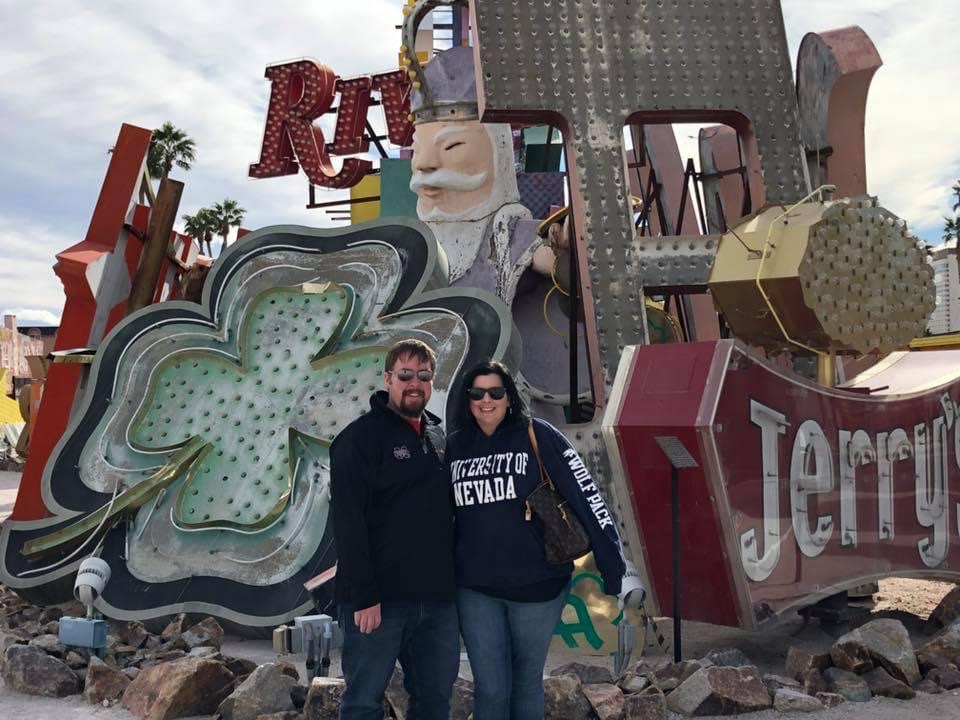
What advice would you like to share with other patients?
A big piece of advice for someone newly diagnosed with scleroderma is that today is not the rest of your life.
To some extent, you will always feel bad about yourself or misunderstood in some way. Early on, you’ve worked so hard to get someone to finally realize that you’re sick. You’ve advocated for yourself, but following your diagnosis, when you haven’t received any treatment yet, you feel at your lowest.
But the truth is that it does get better.
Your struggles become different because you continuously learn. You learn your new normal, your support system, the people you can trust, and the doctors who have your best interests in mind, along with so much more.
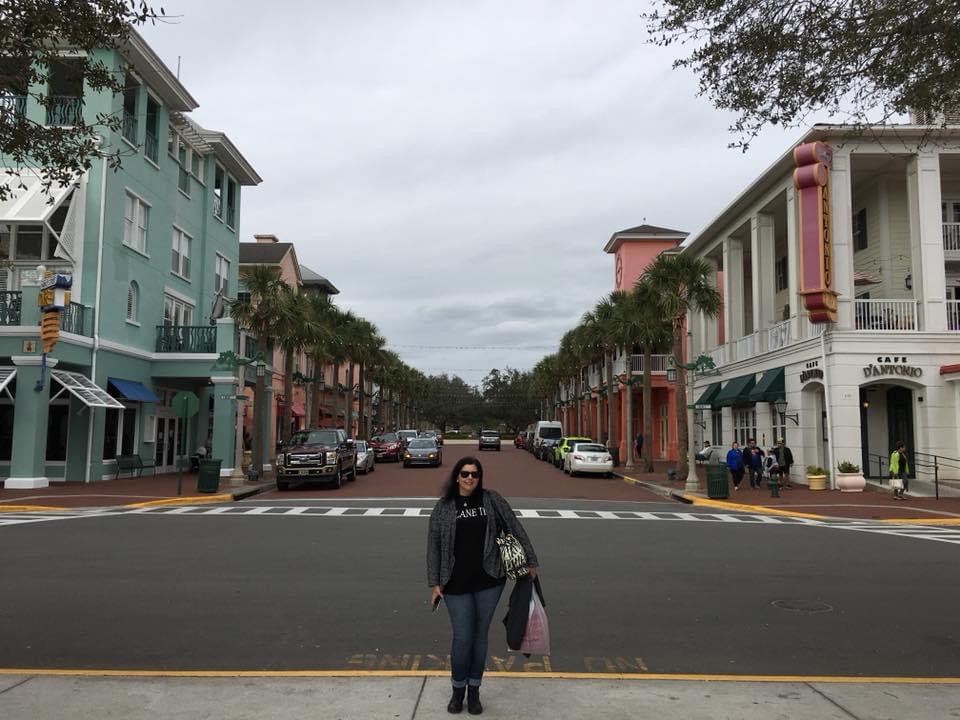
Is there anything else you’d like to share?
I want people to know there is a strong, closely-knit community full of good resources available if you look for it.
I studied political science with an emphasis on health in college with an intent to advocate for patients, never knowing I would end up advocating for myself. We, as patients, need to speak up. Otherwise, no one is going to know about these rare diseases and what we go through on a daily basis.
Be sure to follow us on Instagram and Facebook (@sclerounited) to see more scleroderma warriors’ journeys in our weekly Sclero Sunday series.
Are you a scleroderma warrior? We’d love to interview you for Scleroderma Stories! Please visit tinyurl.com/share-my-sclero-story or email us at contact@sclerounited.us
